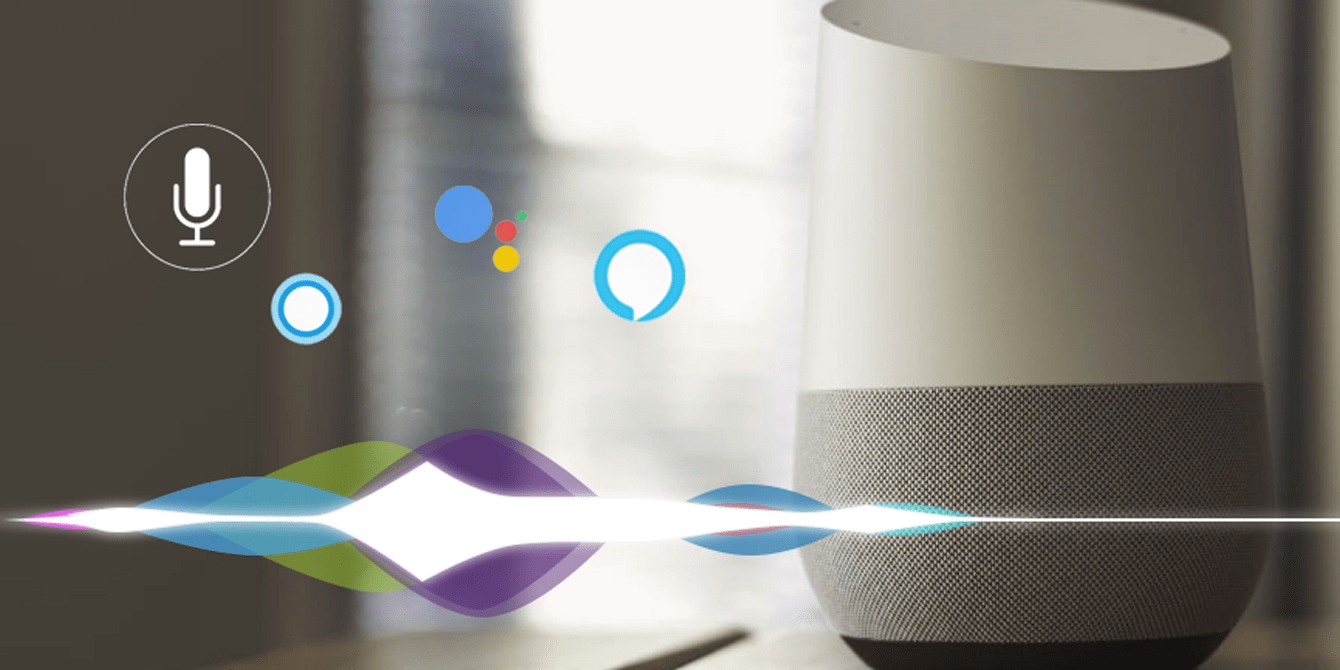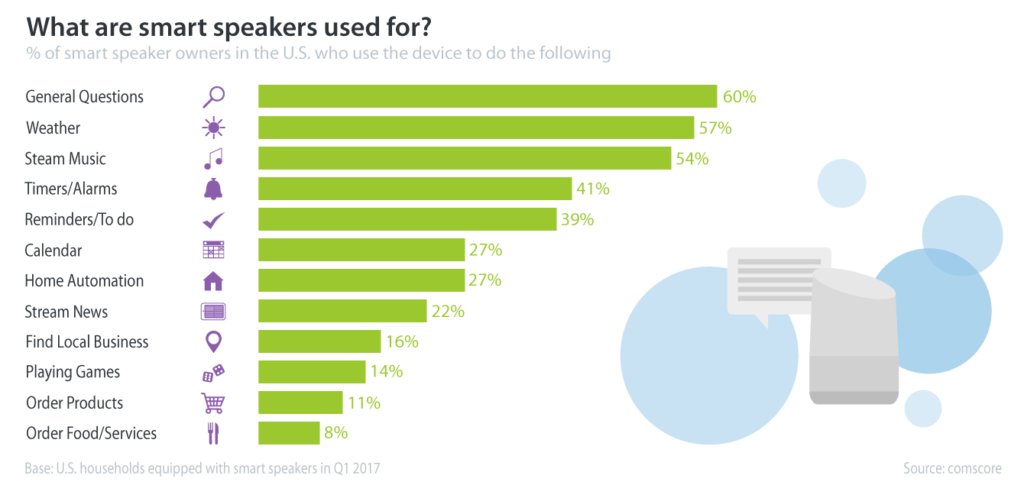
Digital voice assistants: a long-term force in the marketing mix?
Nowadays, there exists a broad range of consumed content on various channels which are constantly growing. The spectrum ranges from classic website content, newsletters, social media, blogs up to (live-)videos. Thus, in the age of digitalization, the consumption of content using different channels is frequently changing. The search for the content itself has remained more or less constant for a while. Search engines are dominating for many years, first of all, Google. For a couple of years now, digital assistants with voice recognition have entered the market: Apple Siri, Samsung Viv, Microsoft Cortana, Facebook M, Soundhound Hound as well as Google’s own product Google Home. The voice assistants are available as separate devices with and without display and as built-in smartphones, household appliances, or TVs.
Regarding search engine optimization (SEO), digital assistants are relevant parameters. According to Google, 20 percent of mobile search requests are by voice. A great potential. Consequently, it is not surprising that tech giants get in on the act when it comes to ensuring long-term competitive advantages. As a result, Google struggles with more competition within its core field of competence – SEO – for the first time. Search queries are shifting to various channels of multiple providers.
Behavioral changes of users regarding search requests impact companies’ SEO strategies because people speak in a different way than they type. Thus, it seems obvious that SEO principles will very probably change. As a market leader in terms of search engines, Google does small adaptations to its algorithm on a regular basis. However, major changes (e.g. Panda, Penguin, and Hummingbird) do not occur that often. The growing importance of voice search could change this.
SEO experts forecast two main factors that are of increasing importance in the future:
Long-tail keywords
The ideal future search engine algorithm will capture and answer questions as a whole. Therefore, it is assumed that keywords become less important, whereas complete sentences answering questions will become more and more necessary. Content should be based on spoken words regarding the respective target group. Filler words and prepositions as well as w-questions are suddenly playing an important role.
Micro-moments
Google defines so-called micro-moments “I-want-to-know”, “I-want-to-go”, “I-want-to-do”, and “I-want-to-buy”. They play an essential role with regard to purchasing decisions. Micro-moments inhere an enormous lead potential and companies should strive to specifically address customers in those situations. If people have a current need, are in a hurry, and quickly need a relevant search result, voice queries matter. Especially (local) restaurants, the entertainment industry, and supermarkets benefit from it. But also for review websites (traveling, food and beverage, leisure time) as well as for news websites, micro-moments are considerable. All these platforms are able to increase traffic due to voice requests if they manage to answer the latest questions.
If companies take these factors into account, they can benefit from SEO advantages which are a crucial factor with respect to their website’s success.

What do these trends mean for companies, especially for publishers?
Some large corporations do already invest in artificial intelligence to a great extent. They integrate digital voice assistants in their marketing activities. For instance, Walmart and Google released a cooperation in August 2017. US customers have the possibility to order Walmart products via Google Home (voice application) and promptly receive them.
Currently, publishers also dare to experiment with digital voice assistants. For example, Condé Nast Germany has launched a Vogue horoscope service for Alexa. It remains exciting which future digital strategies publishers will put into practice regarding voice assistants. Companies ask themselves for which digital assistants they should develop and implement their ideas. Condé Nast counts on the US market leader Alexa. However, Amazon is currently experiencing more and more competition. It is also questionable whether publishers can make use of the features developed by tech producers. Amazon’s latest “Polly WordPress plugin” offers potential. Publishers could demand certain features if specific needs are involved. They could cooperate with tech giants in goal-oriented projects such as Walmart and Google did.
Summary
Digital voice assistants’ increasing popularity is an opportunity. Nevertheless, there is no guarantee that they win through the market. But it is still useful to try out new ideas first on the market. It remains to be seen which future innovations will be launched. As known, competition among tech giants enhances innovations. The innovations in turn create new (technical) opportunities to experiment with voice assistants. Compared to the publishing industry, some industries are advanced regarding the use of voice assistants, but publishers gradually seem to spring into action. Let’s see if digital voice assistants will prevail in the long run. Google will not be the only strong player in the SEO market of the future then.

